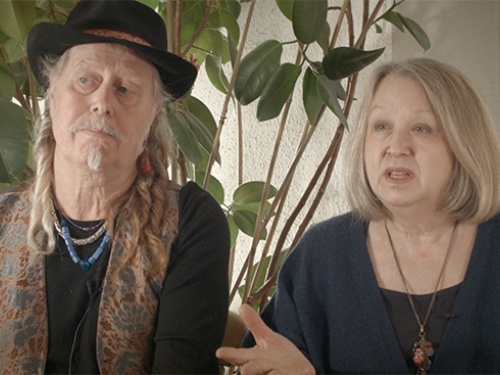InRealLife: Q&A with Director Beeban Kidron
Beeban Kidron's latest film InRealLife (2013), which opens on Friday 20 September, takes us on a journey from the bedrooms of British teenagers to the world of Silicon Valley, to find out how 24/7 internet connectivity is affecting young people. At the opening screening on Tuesday 17 September, Kidron was joined by broadcaster Mark Lawson for a Q&A session. We spoke with the director to find out more about some of the topics raised in the film.
ICA Blog: The cultural dominance of the internet has developed at an unprecedented rate. Was there a specific event that inspired you to decide that now was the right moment to make a film investigating the effects of unregulated internet use on a generation of young people who have known little else?
Beeban Kidron: I think I became aware somewhere in my peripheral vision that teenagers were always attached to a device - and I wondered how those devices mediated their behaviour. I totally accept the generational issue of wanting to be with friends not adults, but I became fascinated at how they now spend a lot of time with each other whilst being effectively elsewhere. I wanted to know if that made for a broader and more interesting world - or if it was dissipating their real life?
Do you think that new technology will fundamentally change the way the next generation interact with each other, or are we just seeing the same social dynamics manifesting themselves in a new and more public medium?
There are so many forces at play that it will inevitably change behaviour—some of it excellent—but certainly all worth analysing and making sure that we are aware of it. As Nicholas Carr says in the film: we know that the young can adapt, we just have to work out what they are adapting to.
What is your biggest concern about unregulated internet use and access?
I am worried about things like the pervasiveness of reward technology, the grasping of data from under-18s who should be experimental and transgressive but are leaving a really public footprint. I worry about a culture of anonymity that allows unbridled cruelty - but does not defend other kinds of freedoms. I am looking for a more level playing field that does not favour governments and corporations, and gives us back the possibility of an open, free and democratic space to communicate.
How would you respond to comments that the film is one in a line of 'concerned parents' propaganda, like the infamous Reefer Madness (1936)?
Ludicrous! Increasingly you simply cannot book a flight, get your homework, sign on, get a job, meet up with your friends, buy music... without signing terms and conditions that hand over all of your information right down to where you are standing on the planet. If the internet is no longer a tool of communication but the way society organises itself, and there is no way to be a full participant in society without using it, then we have to ask what its values are. Otherwise we are all living in the Truman Show.
Have you seen Larry Clark's film Impaled (2006), which focused on the impact of teenagers watching porn on the internet? And if so what did you think of it?
I have not - sorry. But I have watched a lot of porn with teenagers, and the impact is acute. ■
InRealLife opens at the ICA Cinema on Friday 20 September 2013.
This article is posted in: Film, Interviews
Tagged with: interview





